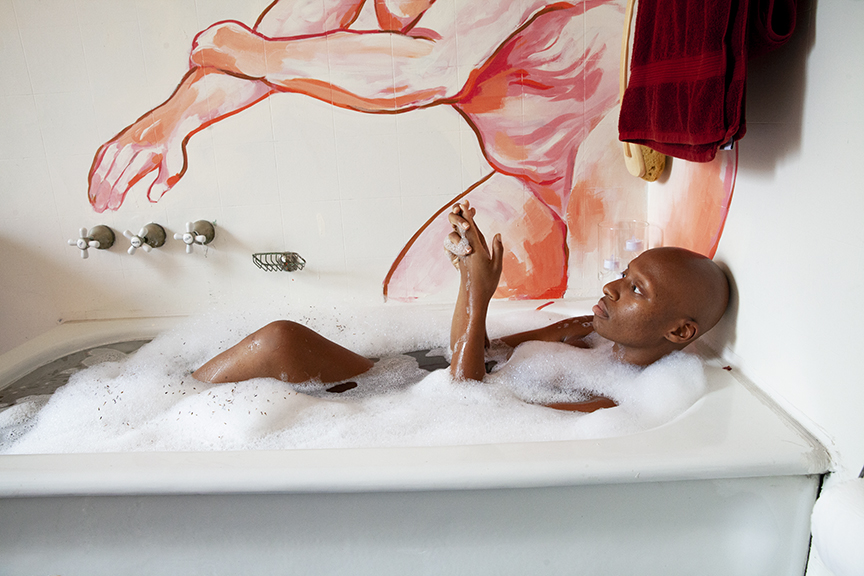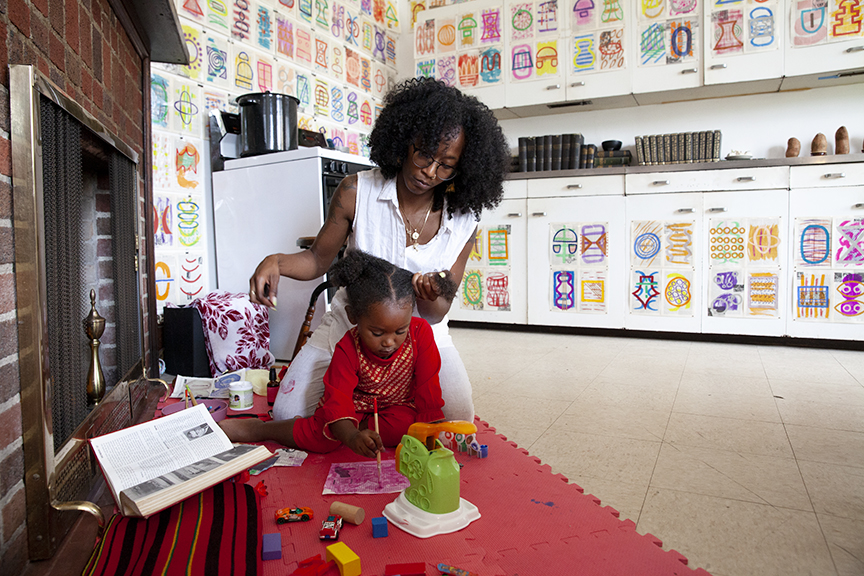EnVISIONing an Equitable Future
Rites of Passage Project is based in Berkshire County.
Freedom from gender-based violence is one of the Women’s Fund strategic pillars for advancing gender and racial equity in our region. To us, that means to promote safety from gender-based sexual violence, toxic relationships, and power dynamics to ensure bodily security and autonomy.
We are proud of the committee members who participated in this year’s trust-based philanthropy process to award funds for the crucial healing and recovery work throughout the four counties of Western Massachusetts.

Photograph by Jeanny Tsai.
How is your organization making a difference for women and girls in Western Massachusetts?
Rites of Passage: 20/20 Vision was a house of healing, resilience & belonging honoring the lives of Women of Color. The overarching mission of The Rites of Passage Project is to “empower women of all ages and ethnicities to reclaim their unique continuum of life experiences as ‘rites of passage.”
Through the arts, we speak of women’s commonly suppressed life experiences such as menarche, pregnancy, birth, menopause, and aging, as well as taboo topics such as sexual trauma (estimated to be experienced by 2 out of 3 women in America,) abortion and miscarriage, and claiming LGBTQ identities. This August, throughout 21 rooms of the historic Women’s Club building, we gave shape to the myriad life transitions or “rites of passage” that women may experience in a lifetime, weaving together shared threads of resilience across a wide spectrum of ages, identities and ancestral legacies.
The specific goals of Rites of Passage: 20/20 Vision, and which we achieved were to:
- Bring together diverse Women of Color artists, performers, and changemakers from across the U.S. with local women, Women of Color, with women-led organizations of the Berkshires.
- Celebrate women’s rites of passage life experiences through accessible and interactive public art and performance.
- Create a space for local Black, Indigenous, Immigrant Women of Color (BIPOC) who have been historically underrepresented, both as artists and audience members in the area.
How is your organization working toward meeting the goals of our freedom from gender-based sexual violence, harassment, and abuse pillar?
We held 3 Expressive Arts Workshops with the Elizabeth Freeman Center called “You Are Brave”, facilitated by Gabrielle Senza- using visual art as a healing tool for women survivors of sexual violence. The workshops series was deeply empowering to the women who attended, and we exhibited their work on the walls in a room called “No Longer Silent.” This room itself impacted many women who walked through the house during the live event. Simple, yet poignant, so many of those who witnessed it could relate their own experience.
What is happening in the world, your region, or your city today that is creating the greatest challenges for women and girls?
The greatest challenge is the pace of life within the capitalist framework coupled with the lack of a tight-knit community.
Women often don’t have time or space or containers in which to process past or present difficult experiences. So many of us feel alone, and just work to make ends meet. Within this context, true healing and true empowerment from sexual violence is very difficult. Added to this therapy is usually too expensive and out of reach for far too many women, especially low-income women and Women of Color. Knowing we are not alone is a tremendously important part of healing and empowerment.

Photograph by Jeanny Tsai.
What solutions does your team or organization recommend to address this?
We need more spaces of free & accessible healing for women & girls.
For the 9 women who attended our workshop series, a safe and welcoming space was provided for them to not only process trauma, but to claim who they are beyond it. Rites of Passage offered a temporary place of healing and reconnection for lower-income women. It was a space where women could see their own stories reflected, and where the focus was on healing, rest, and interconnection. We believe that just being in that house made an impact on the way people see and carry out their own lives.
What success have you found in your recent work?
Rites of Passage had more than 1,000 attendees over 10 performances from August 13th-17th, 2021, at the Whitney Center for the Arts in Pittsfield, Massachusetts. About a ¼ of these were BIPOC audiences. In total, Rites of Passage involved 70 performing & visual artists and professional collaborators – the majority of them Women of Color – from all over the U.S. On site, we had a community of 45 women. Beyond being a mere concept, rites of passage became profoundly layered and intimate reality for all who entered the house. We believe that every person who walked through it left it changed, perhaps renewed, with something vital remembered within.
Now more than ever the wisdom & voices of women, and those of Black, Indigenous and Immigrant People of Color needs to be amplified and heard in ways that can nurture deeper empathy and connection. At a time when America is simultaneously reeling under the stress of Covid-19 and its legacy of racial inequity, Rites of Passage: 20/20 offered a space of healing and interconnection that at once celebrated our differences and our commonalities in 360 degree living color.
Beyond being merely an art project, Rites of Passage truly was a living village – which was what was what I had ultimately hoped for. It was a lived experience for its collaborators- a literal rite of passage. Each of us as collaborators were transformed by the process forever – many of us always having longed for, but never till now experienced, the kind of community we built at Rites of Passage. Moreover, to be in a container of a majority of Women of Color was deeply healing for all of us.
All said, Rites of Passage was an unequivocal success based on achieving our original goals, and based on the overwhelmingly positive feedback from audiences that continues even now as people thank us for how “generous an experience it was,” as well as overwhelmingly positive feedback and gratitude from our on-site collaborators.
Including donations, what can our audience do now to help your organization’s mission?
Donations are always welcome and will go to future iterations of Rites of Passage including an online virtual museum and large-format photo book.
We are about to release an online “virtual tour” of Rites of Passage: 20/20 Vision on November 5th. This will be a free experience. We want everyone to see it and spread the word!

